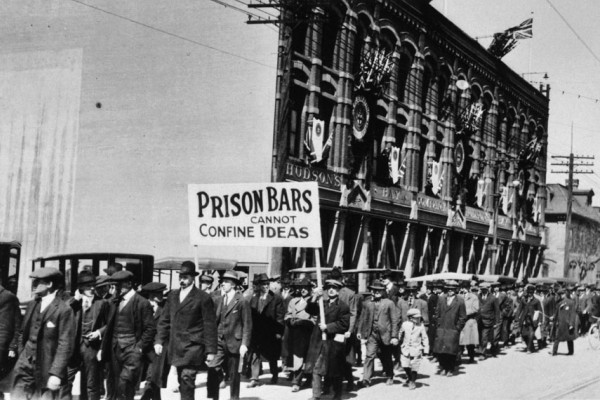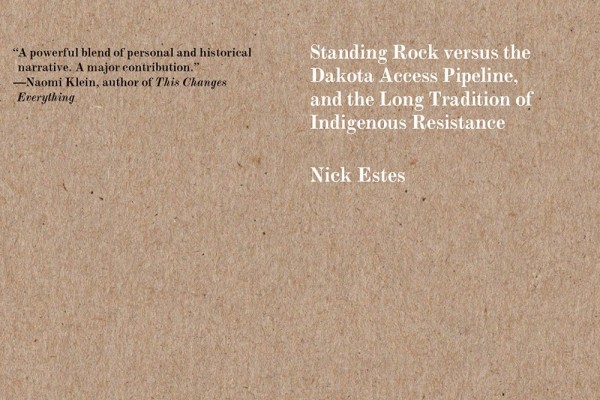He also writes thrillers ... and good ones, too
Caveat lector. I must confess from the outset that Bill Fletcher is a personal hero of mine. He is a noble warrior — a trade-union activist at the forefront of worker’s struggles in the Unites States, and also a key figure, particularly among African Americans over the years (he was once head of the celebrated TransAfrica Forum), in the movement to support the liberation struggle in southern Africa.
Especially notable for me in this latter vein were several articles he wrote warning his fellow liberation movement supporters, especially the black comrades among them, not to look for reasons to support Zimbabwean dictator Robert Mugabe merely because he had some of the “right kind of enemy” in the ranks of the Western/white powers. Fletcher knew that Mugabe was himself a mortal enemy of any promise that liberation might hold for the mass of the Zimbabwean people, and set himself, clearly and bravely, to tell the truth about Zimbabwe to Black Power.
In short, an honourable career, on these and many other fronts, about which so much more could be said … but a thriller writer of considerable talent, as well? Who knew?!
Unsurprisingly, Fletcher’s The Man Who Fell From the Sky is an eminently political thriller, probing both the legacy of the racial polarizations of the World War II period, as well as the tensions that continued to scar postwar America (such as its war against Vietnam, for example).
Here, Huey Newton is namechecked as appropriately as are Frantz Fanon and Amilcar Cabral. Nor is it just relations between black and white that are explored (with some racial “passing” quite important to the plot), but also relations among black people themselves. The Cape Verdean community in the Cape Cod area of Massachusetts is front-and-centre, and the vibrancy of that community and the tensions within it — including its relationships with its white (not least Portuguese-American) and African American compatriots — are allowed, compellingly, to appear as the plot unfolds.
Fletcher is also adept at intersecting his political concerns with convincing references to jazz (Duke Ellington, Miles Davis, Freddie Hubbard), appropriate food fixes (Portuguese linguica sandwiches, for example), and much else. In such ways, the book feels especially “real.” Moreover, the centrality of the Cape Verdean connection draws the various mentions of Cabral and African struggles into the story quite seamlessly. These latter realities remain important right up to the last chapter, which carries various characters into the new century, right up to the very last page. (Fear not, no “spoilers” here!)
All this, plus the convincing evocation of the complexities of the various characters’ personal lives — especially those of David Gomes (not Gomez — therein hangs a tale!), Cape Cod-based journalist at the centre of the story. These complexities are set forth ably, linked to issues of commitment, marriage, career, kids, and the like. First and foremost, Fletcher is wearing his novelist’s hat, here; he has some points to make, but he also has a story to bring to life.
The overall setting is key — principally the 1970s, with the fingerprints of the Second World War (and its racist resonance in the United States) all over it, along with those of the drama of the African liberation struggle. Against this backdrop, the characters’ lives play out dramatically.
And there’s a good yarn to go with it — the thriller itself: several mysteries to be solved, convincing dangers to life and limb to be endured (or not), twists-and-turns of plot to be unravelled, and, one way or another, resolved. It’s too late in the year to read this novel on the beach, perhaps — but you may read it now in the certainty that you’ll enjoy a good read, but also, maybe, that you will return to whatever struggle you may fancy it worthwhile to partake in with a little more vigour because of it.
After all, when did you last read a thriller in which the works of Frantz Fanon and Amilcar Cabral — two key figures at a crucial stage in the African fight for freedom — intersected seamlessly with a gripping mystery story?
John S. Saul has taught for many years at Toronto’s York University (until his retirement), and in Tanzania, Mozambique, and South Africa. His most recent book is On Building a Social Movement: The North American Campaign for Southern African Liberation Revisited (2017).
This article appeared in the Fall 2018 issue of Canadian Dimension (An Unjust Justice System).










